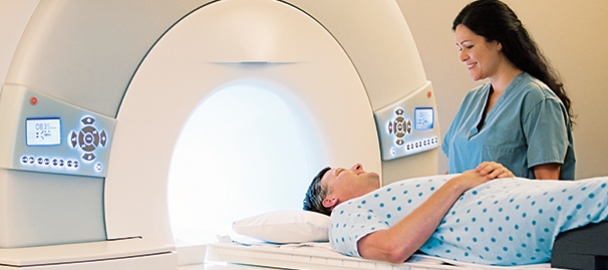
In less time than it takes for a typical lunch break, individuals at risk for coronary artery disease can learn their probability of having a heart attack—in time to do something about it.
The test, called a CT coronary artery calcium scan, identifies the presence, location and extent of calcium deposits in the inner walls of the arteries that lead to the heart. Calcium is a marker for coronary artery disease and indicates a build-up of fat and other substances inside these blood vessels. Called plaque, this material can cause a heart attack.
From Zero To 400
“The amount of calcium present in the coronary arteries is scored on a scale from zero—meaning there is no identifiable disease—to 400 and higher, warning that severe coronary artery disease is present,” says Robert Pompei, M.D., Saddleback Medical Center medical director of radiology. If the patient’s score is moderate or high, he or she will be reclassified into a higher risk category and treated with more aggressive therapies such as cholesterol-lowering medication. On the other hand, if the calcium score is low, less aggressive treatments can be adopted. Additional testing, such as angiography, may be necessary for patients with high calcium scores.
“A calcium scan is a good test to determine what treatments are most appropriate for seemingly healthy patients who have two or three major risk factors for coronary artery disease,” says Dr. Pompei. Calcium scoring is noninvasive and requires no injections or incisions. No special preparations are asked of the patient, who remains fully awake during the exam. In less than one minute, the CT scanner painlessly takes multiple images of the heart.
At Saddleback Medical Center, CT coronary artery calcium scans are performed on a 64-slice CT scanner for speed and precision. The hospital also offers a full range of cardiovascular diagnostic and treatment options.